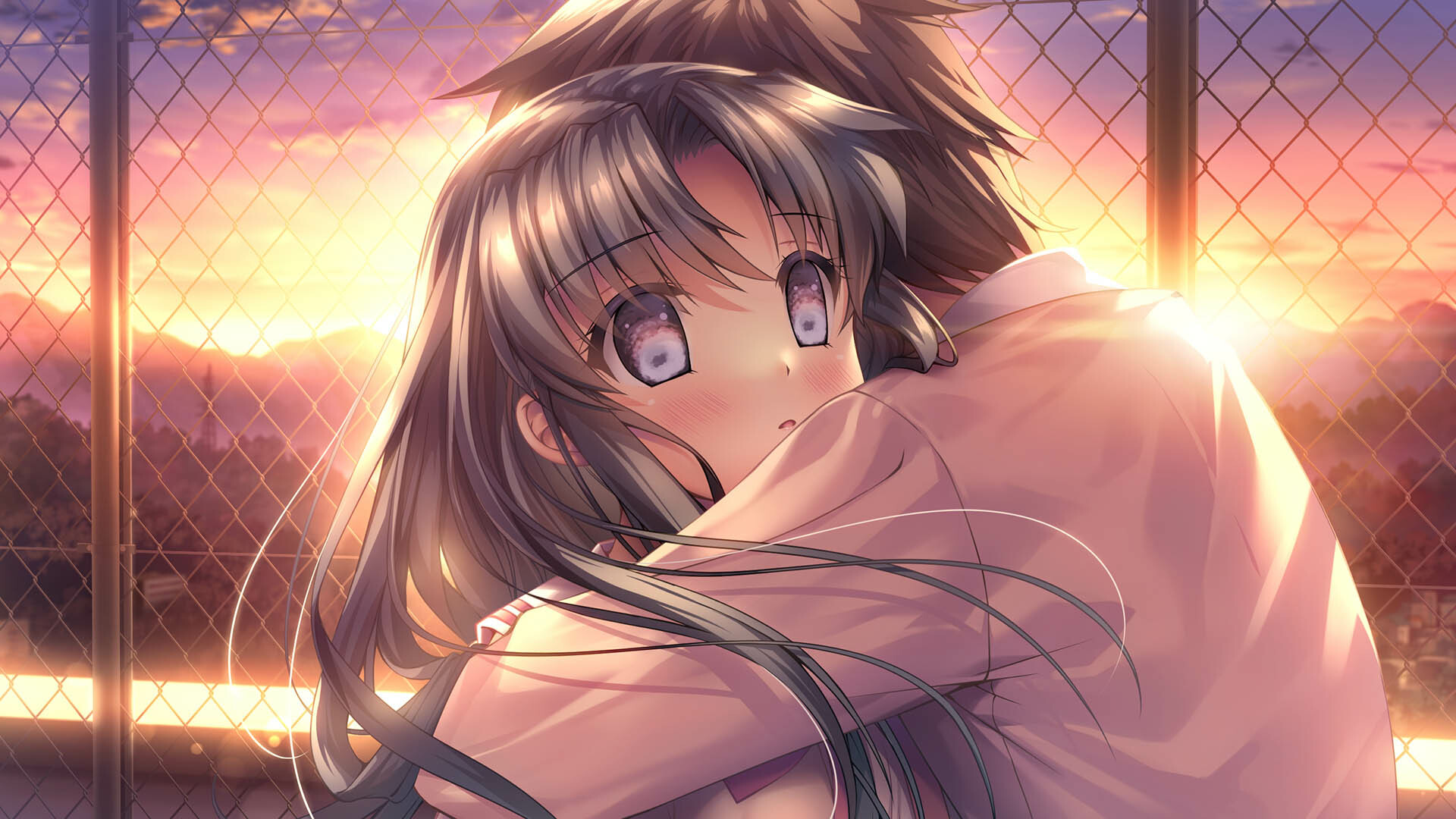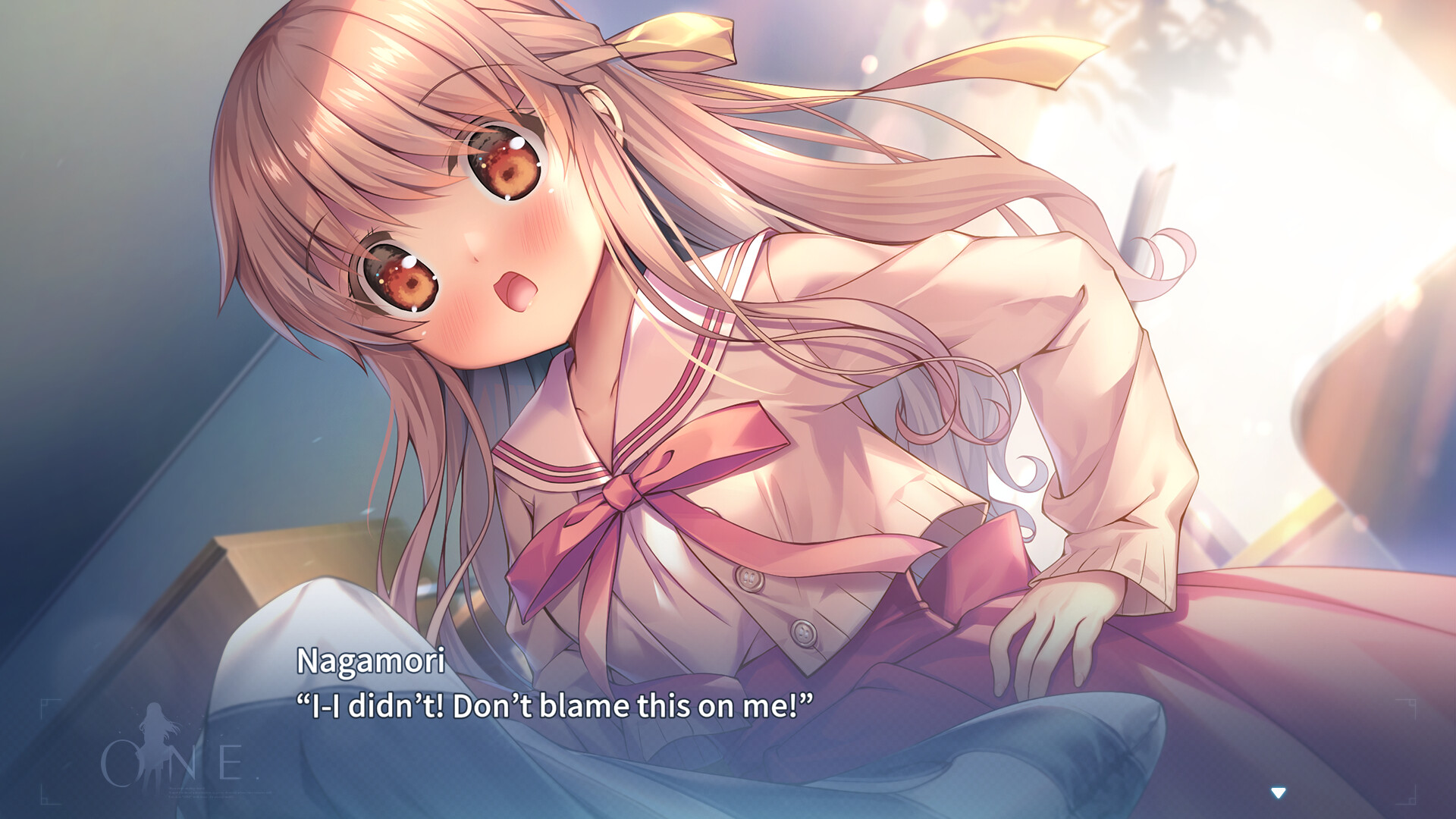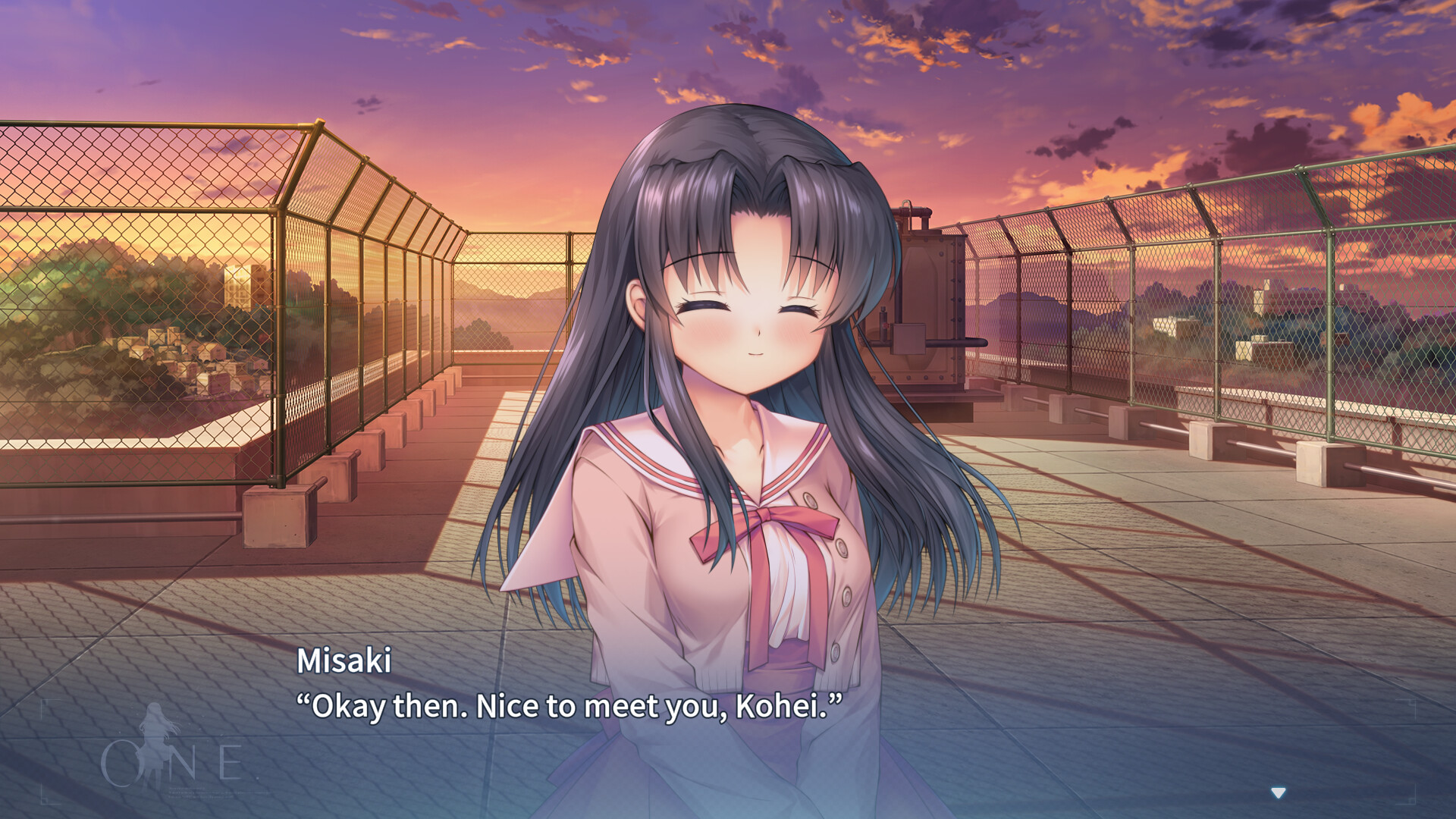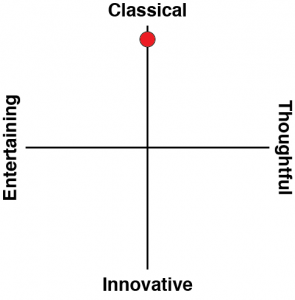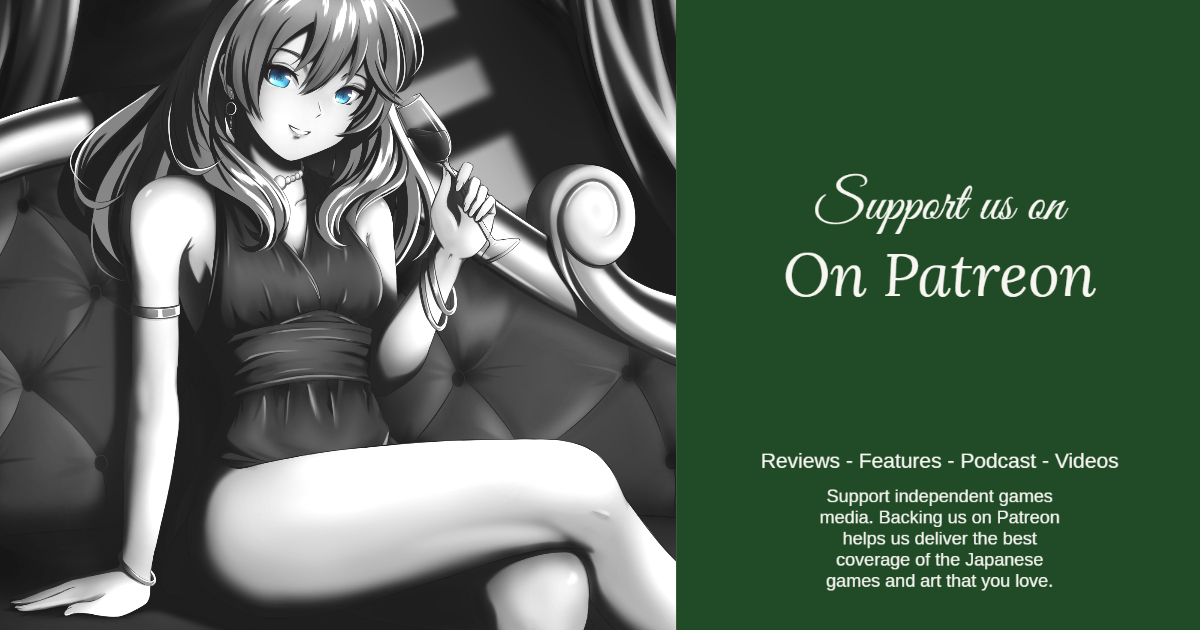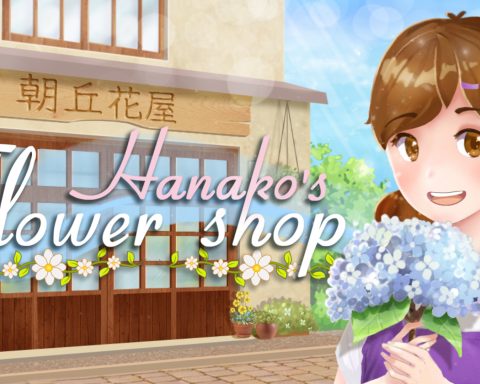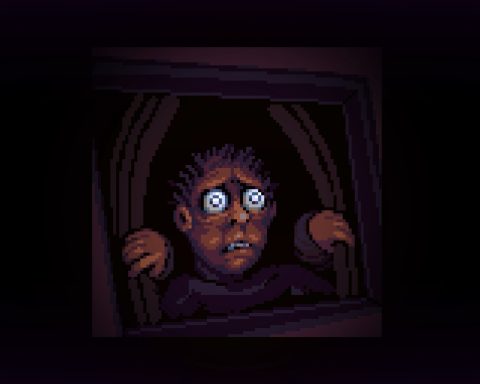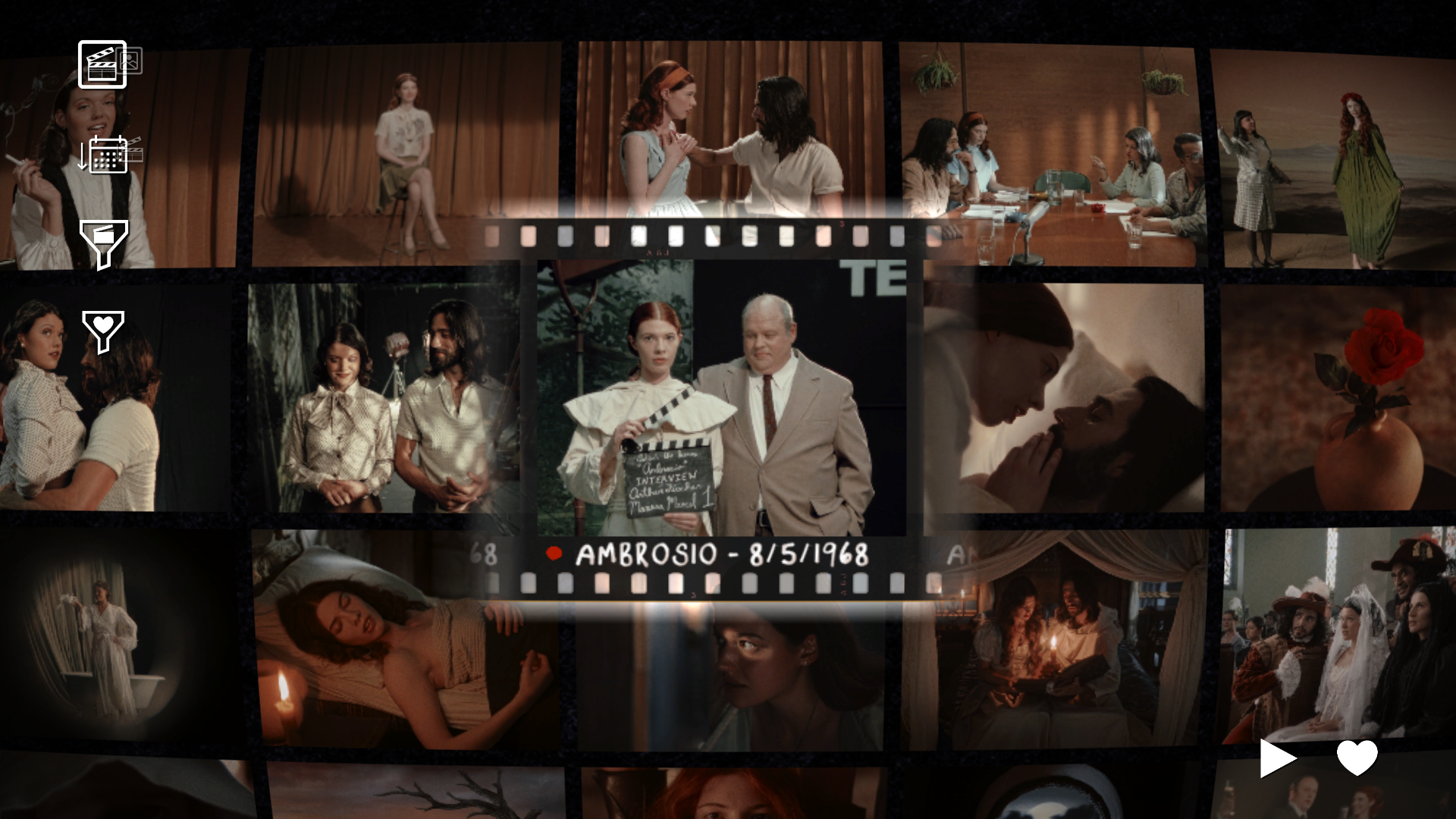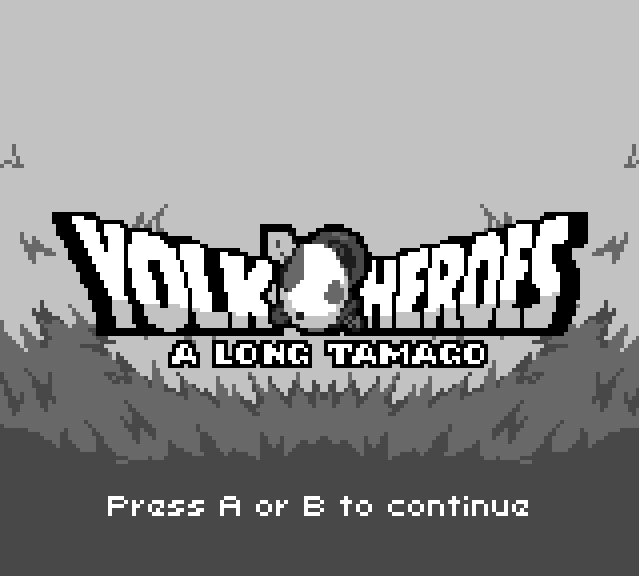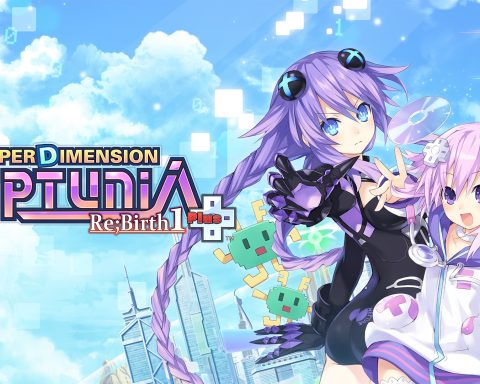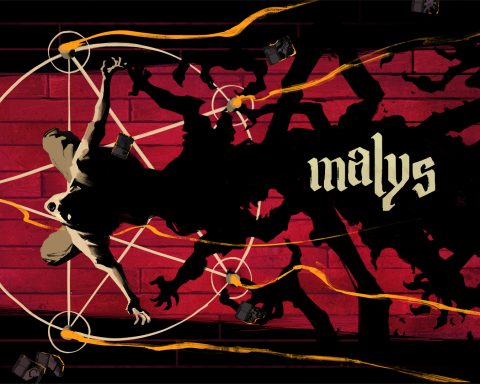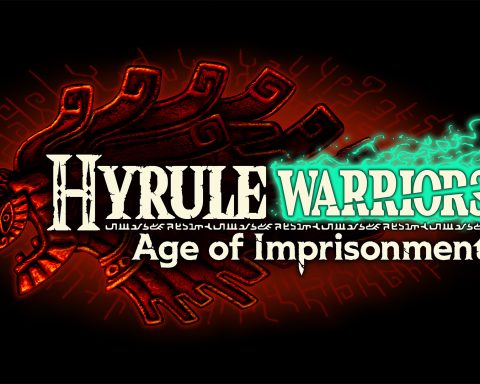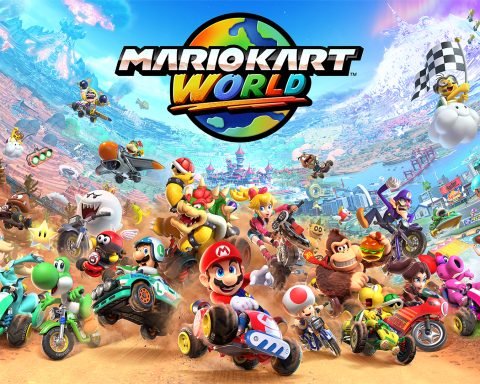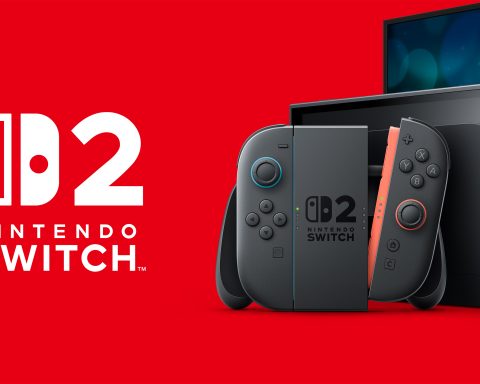One – also known as Kagayaku Kisetsu e – is one of the legends of the visual novel genre. Originally released way back in 1998, it was one of the early projects by a developer called Tactics, which is notable because many of the creative team moved on from that studio to found Key. Yes, the studio behind Little Busters!, Clannad, Harmonia and Angel Beats! Originally it was an erotic game, but was later ported to console minus the hardcore material. Now, with the Switch release, the “all ages” version has been re-released, and in playing it you can easily see the foundations of what would become one of the niche’s greatest at work.
With that being said, things don’t start out well in One. You play as schoolboy Kōhei Orihara, and he is… well, he’s not a pleasant person to people around him. We learn early on that he’s had a difficult childhood, with both of his parents passing away, which results in him living with an aunt that he never sees. So he’s got reason to be a bit bitter with the world… but he’s just mean to all the girls around him, and there are more than a few of those. He loves teasing and tormenting the girl next door, who comes over to wake him up or else he’d never be at school. That service, from a sweet little friendship she feels towards him he repays by deliberately leaving for school early without a note or sleeping in his cupboard to play a prank on her. Another girl isn’t interested in talking to him, so he proceeds to hound her during lunch breaks. He also insults the girl that sits in front of him, and plays games with a blind girl’s inability to see him.
Anyone who has played enough formerly erotic VNs knows that the male protagonists are rarely paragons of morality (especially VNs from that era). However, in the initial stages, Kōhei really lays on the delinquent mean boy act a bit too much.
Thankfully he settles down (well, except for one particular route, which you’ll recognise immediately if you reach it). From there you realise that he’s a caring and compassionate sort underneath (with that one exception). It’s also not the only area where One surprises. What starts as a light and bubbly visual novel about daily life for a bunch of school students eventually takes on a significantly sadder tone. It’s difficult to talk about the direction that the game goes without dipping into spoilers, and of course, I don’t want to do that. What I will say is that the endings are either bittersweet in their romance (if you get one of the good endings) or just plain tear-jerkingly sad and the emotional core of the narrative sits with one of the great fears that we collectively face: None of us wants to grapple with the idea that we might be forgotten, and that our impact on the world only lasts for as long as we are actively remembered, and yet that is exactly the destiny for most of us. Enter George Eliot: “Our dead are never dead to us, until we have forgotten them.” That’s the thematic crux of the game, and it hammers that home with total emotional weight.
The game takes its time getting to the emotional gut kick, but as you start to come to terms with the characters, it’s an enjoyable journey overall. The localisation is handled by Shiravune, an outfit that is really kicking goals with modernising classic visual novels (if only theywould take a look at Fate/Stay Night!). The translation seems to be right on point and maintains both the character quirks and sometimes poetic nature of the language used.
Meanwhile, the visual update is gorgeous. I do wish that these remade visual novels kept the original art, because that was so critical to the artistry of those original projects, but it’s also easy to see just by looking up screenshots of the original game that it needed a modernisation to work as a visual novel today. I can’t say that these are my favourite character models or designs, but they are drawn and animated with a lot of care and detail, and this is supported by a relatively few, but well-designed and evocative backgrounds.
The only real problem with One on Nintendo Switch is that the button inputs are slightly borked. As with most visual novels, you press a button to move the dialogue from one line to the next. Every so often, a decision tree pops up and you can choose from a handful of different responses and actions. The problem is that if you are reading through a line of dialogue, and then press the button for even a fraction of a millisecond too long, if the next screen is one of those trees, the game will accidentally register your decision as the top option of the tree, before you’ve even had a chance to look at what the options were. It seems incredible that the one piece of interactivity the game has is not particularly well designed, but there you go. I had to jump back to saves more than a few times just so I could make sure I could follow the paths that I wanted to.
One might not end up being remembered as fondly as some other classics from the formative era of the visual novel genre (you’ll realise how good that pun is when you play the game for yourself), but it is nonetheless a worthy and surprisingly touching genre classic. Thanks to excellent modernisation, it has a high chance of finding an all-new audience now.
